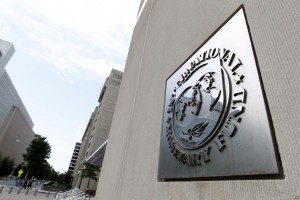The International Monetary Fund (IMF) has projected a reduction in real Gross Domestic Product (GDP) growth for Zambia to about 5.5 percent in 2014.
Speaking at the end of the mission to Zambia for discussions for the 2014 Article 4 consultation, IMF team leader Tsidi Tsikata whose team held discussions with government and other stakeholders from December 4-18 says this is as a result of technical outages at some mines leading to a decline in copper production.
Mr Tsikata has observed that while Zambia’s growth potential remains high amid continued strong economic growth, the medium-term outlook is clouded by domestic and external risks.
Mr Tsikata says the outlook is buoyed by several mining and electricity supply projects that are about to come on stream.
He however, notes that political and social pressures for loosening fiscal policy in the run-up to the 2016 general elections are potential sources of downside risks.
Mr Tsikata further points out that lower world copper prices and the announced shift to a royalty-only mining tax regime with high rates are likely to adversely affect the mining sector.
He says greater policy stability and consistency would help anchor confidence in Zambia as an attractive investment destination.
Mr Tsikata says In this regard, the mission urged the authorities to seek a speedy resolution to the impasse over VAT refunds to exporters.
He states that it will be important to enhance dialogue between stakeholders, particularly between government and the mining sector where there is a need to build mutual trust.
Mr Tsikata adds that effectively addressing the country’s fiscal imbalances is critical for maintaining macroeconomic stability and ensuring a strong foundation for sustained economic development.
He further states that despite some progress in 2014, keeping public finances in line with approved government budgets has proved challenging, and deficit financing has put upward pressure on interest rates.
He says in the mission’s view, based on the current international and domestic environment the 2015 financing requirement is likely to be larger than planned.
He however, says the mission welcomed the authorities’ intention to take measures to keep the deficit within the budgeted level.
Mr Tsikata says after the January 20 presidential by-election, the mission team will engage the incoming government to discuss its policy intentions and priorities before submitting a report to the IMF Executive Board on the 2014 Article IV consultation.
The IMF team met with Finance Minister Alexander Chikwanda, Bank of Zambia Governor Michael Gondwe, and other senior government officials, as well as members of parliament and representatives of the private sector, civil society, and development partners.
 Q FM Africa's Modern Radio
Q FM Africa's Modern Radio